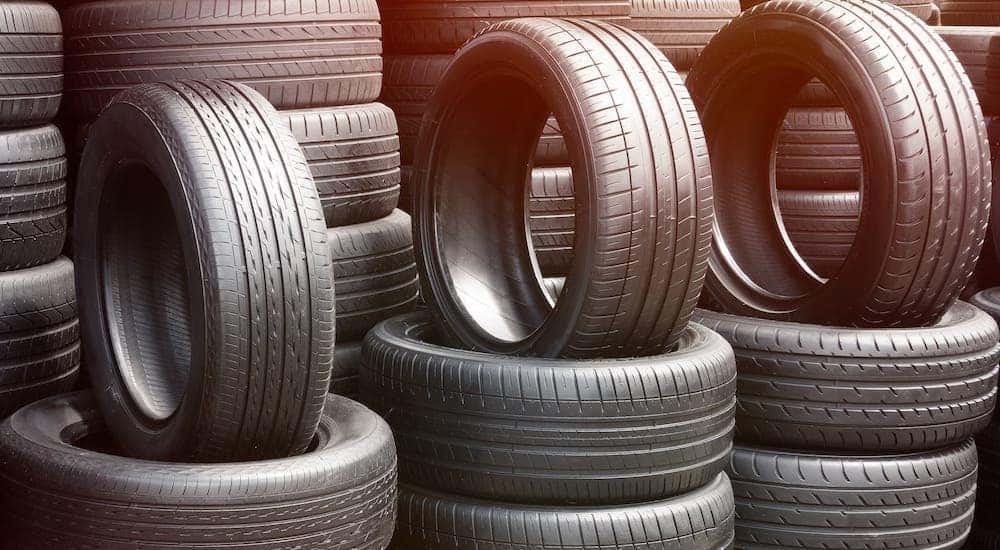The Environmental Advantages of Proper Tire Maintenance
Keeping correct tire care is commonly overlooked, yet its influence on the environment is extensive. From decreasing fuel usage to decreasing discharges output, the benefits are far-reaching. Proper tire upkeep not only prolongs the life-span of tires yet likewise lowers garbage dump waste and adds to boosted air top quality. The interconnectedness of these advantages highlights the vital role that easy upkeep methods can play in promoting environmental sustainability.
Decreased Fuel Usage
Improving tire upkeep techniques can lead to a considerable reduction in fuel intake for lorries. According to the U.S. Department of Energy, underinflated tires can lower gas mileage by 0.2% for every 1 psi decline in stress in all four tires.
In addition to tire stress, routine tire rotations and placements likewise play a critical function in fuel performance. Erratically used tires can raise gas consumption as the engine functions harder to maintain rate and traction. By keeping proper alignment and turning tires at advised intervals, vehicle drivers can ensure even wear and prolong the life of their tires, eventually conserving gas and lowering their carbon impact.
Extended Tire Lifespan
Extending the life-span of tires is a vital aspect of reliable automobile upkeep methods that can generate cost savings and ecological advantages in the lengthy run. By properly keeping tires, motorists can significantly extend their use, decreasing the regularity at which new tires need to be manufactured and old ones dealt with. This not just conserves important resources however additionally lessens the energy and emissions related to tire manufacturing and disposal processes.
Routinely examining tire stress, rotating tires, and guaranteeing appropriate positioning are necessary action in extending tire life expectancy. Appropriate tread deepness is crucial for optimum grip and safety and security, but it also plays a role in for how long tires can be used before needing replacement. Furthermore, preventing aggressive driving actions that speed up tire wear, such as rough stopping and sharp turns, can additionally enhance tire resilience.
Eventually, increasing the long life of tires via proactive upkeep not just benefits the environment by decreasing waste and saving resources yet also brings about set you back savings for lorry proprietors by postponing the demand for new tire purchases.
Lower Discharges Output
Reliable tire upkeep methods add to a reduction in emissions result, lining up with environmental sustainability goals in the automotive sector. Effectively inflated tires, on a regular basis rotated and aligned, can boost fuel effectiveness, thus decreasing the total co2 exhausts from automobiles. When tires are underinflated, the engine needs to function more challenging to push the vehicle, bring about raised gas intake and greater discharges. By keeping optimum tire stress levels, chauffeurs can help alleviate these negative environmental impacts.
Furthermore, properly maintained tires likewise improve grip and lower rolling Recommended Site resistance, better improving fuel effectiveness. This, consequently, reduces the quantity of exhaust gases launched right into the environment. In addition, making sure tires are correctly inflated and straightened can prolong the life-span of the tires, decreasing the regularity of tire replacements and the associated environmental expenses of tire manufacturing and disposal.

Reduced Land Fill Waste
Given the favorable effect of correct tire maintenance on minimizing emissions output, one more substantial environmental benefit is the possibility for decreased garbage dump waste. By making sure that tires are properly blown up, aligned, balanced, and rotated consistently, their life-span can be significantly prolonged.

Improved Air High Quality
Enhancing air top quality via appropriate tire upkeep methods is an important facet of sustainable ecological stewardship. When tires are underinflated, they create a lot more rolling resistance, leading to increased gas consumption and greater discharges of harmful pollutants such as carbon monoxide gas and nitrogen oxides. Correctly inflated tires not just enhance gas effectiveness but also lower the amount of pollutants launched right into the air.
Additionally, well-maintained tires with correct walk depth and placement contribute to more secure driving conditions, lowering the likelihood of mishaps that can cause the launch of get redirected here additional pollutants right into the atmosphere. By expanding the life expectancy of tires via routine upkeep and turning, less tires are thrown out too soon, decreasing the environmental effect of tire disposal and manufacturing procedures.
Verdict
In final thought, proper tire maintenance offers numerous ecological benefits. By decreasing fuel consumption, expanding tire life-span, lowering discharges output, reducing landfill waste, and boosting air high quality, individuals can contribute to a healthier planet. These initiatives not just benefit the setting yet additionally assist to preserve resources and lower overall ecological influence. It is necessary for individuals to prioritize tire upkeep as an easy yet Learn More reliable means to shield the environment for future generations.
Proper tire maintenance not just extends the lifespan of tires but also lowers land fill waste and contributes to boosted air top quality - morris tire. By maintaining appropriate alignment and turning tires at recommended periods, vehicle drivers can ensure even put on and lengthen the life of their tires, inevitably saving fuel and decreasing their carbon impact
By appropriately preserving tires, drivers can substantially extend their usability, lowering the frequency at which brand-new tires require to be produced and old ones disposed of.Frequently checking tire stress, rotating tires, and guaranteeing proper alignment are vital steps in prolonging tire life-span. Additionally, making sure tires are appropriately blown up and straightened can extend the life expectancy of the tires, decreasing the regularity of tire replacements and the linked ecological expenses of tire production and disposal.